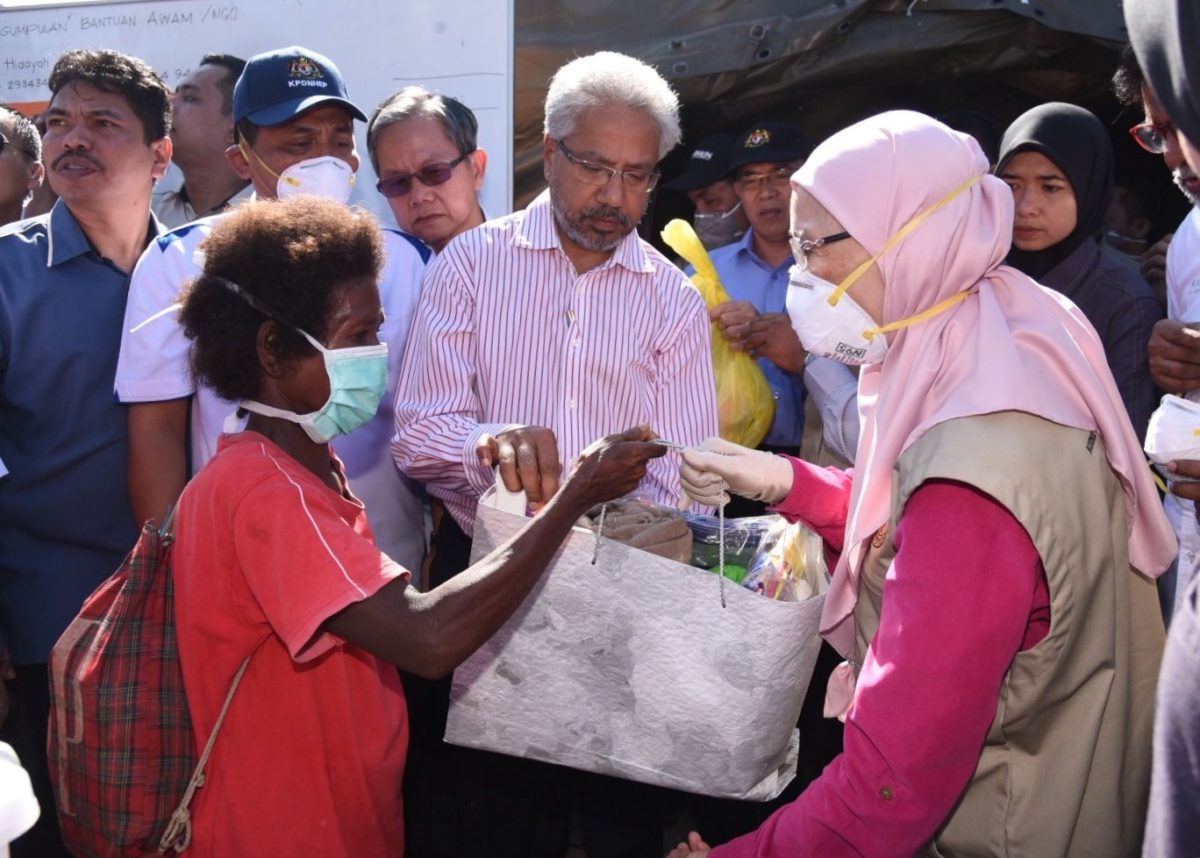KUALA LUMPUR, June 14 — The Department of Environment’s (DOE) analysis of water quality at a manganese mine in Kampung Kuala Koh, where 14 Orang Asli died, showed it was up to standard.
Deputy Prime Minister Dr Wan Azizah Wan Ismail said DOE’s investigation also confirmed that no waste was produced by the manganese mine at Aring 10, 3km from Kuala Koh, Gua Musang, amid allegations that a mysterious infection which killed members of the Bateq tribe was caused by contaminated water.
“Results from the Chemistry Department on June 12 2019, as a whole, found that the water quality at the site where the sample was taken followed the National Drinking Water Quality Standards for raw water,” Dr Wan Azizah said in a statement after visiting the Orang Asli village of Kuala Koh.
“The Ministry of Health (MOH) is currently investigating and running lab tests to identify the source of the infection. Results of the lab tests are expected to come out soon,” added the women, family, and community development minister.
She also said a temporary shelter has been set up at a former national service camp in Gua Musang to house the Orang Asli who have been discharged from hospital, but whose movements need to be monitored pending the confirmation of the cause of the infection.
“Early estimates show that the temporary shelter can house 50 people. The maximum the shelter can take is 400 people.”
She added that authorities have located eight out of 12 bodies as of yesterday. Two of the 14 deaths among the nomadic Bateq tribe were confirmed to result from pneumonia, although the cause of the respiratory infection has yet to be identified.
Dr Wan Azizah said Kuala Koh was still cordoned off from the public because Kelantan police have declared it a red zone.
Over 100 out of 185 Kuala Koh villagers fell sick in recent weeks from a respiratory infection, displaying symptoms like cough, cold, fever, and breathing difficulties.
Dr Steven Chow — president of the Federation of Private Medical Practitioners Association of Malaysia (FPMPAM) that runs a “Drs for All” programme to provide medical services for the Orang Asli — has questioned how the Bateq tribe’s immunity fell to such poor levels.
He said a “Drs for All” visit to the Bateq tribe in Kuala Koh last April, weeks before the first reported death on May 25, found the Orang Asli living in “appalling” conditions without safe and potable water supply, food, or basic medical care, despite reasonable road access to the village.
Women and children in the tribe suffered from multiple health issues like chronic malnutrition, skin infections, worm infestations, gastrointestinal infections, and respiratory tract infections.








